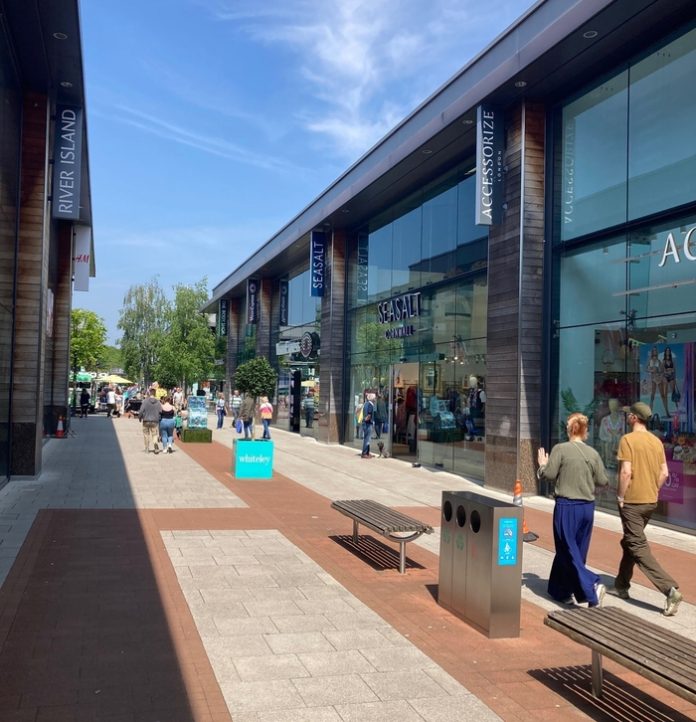Despite the ongoing challenges of the High Street, the positive outlook for out-of-town retail remains, with record rents being set within the drive thru / drive to markets across the UK, according to SHW’s Q3 2024 Retail Focus.
On the high street, although prime and secondary rents have remained broadly static, and are expected to continue at this level, demand within the South East region remains good, with many retailers / operators using the current market conditions to their advantage. Richard Pyne, Partner and Head of Retail Agency at SHW, says: “Local councils still need to continue working with retailers to ensure the high street remains viable and vibrant, together with diversification and intensification to ensure high footfall.”
The out-of-town retail occupier and investment market remains strong, albeit with little stock available.
Jeremy Good, Director of SHW for Out-of-Town Retail, says: “The first half of 2024 has seen the overall economic climate stabilise as inflationary pressures reduce and interest rates level, leading to an improvement in consumer confidence across the retail sectors. The General Election announcement has meant a short lead-in to a new Government and the economic indicators suggest that the traditional positive post-election bounce in the first new months of any new administration will continue to show a cautiously optimistic outlook across the Out-of-Town Retail sector.”
The sector continues to see positive sales growth in the grocery, essential, hospitality and leisure sectors although the more traditional “big box” retailers sectors including DIY, electrical and furniture operators have suffered from consumers deferring discretionary expenditure on big ticket items. The recent letting activity in the sector has continued to be focussed on the discount retailers but with increasing activity in the essential and value non-food sector has resulted in a further shift away from reliance on discretionary spend. Jeremy adds: “Along with improving sales volumes we have seen continued year-on-year growth in footfall on retail parks as the shift to convenience/essential retail continues.”
“The most active retailers over the last year have been in the discount food sector with Aldi and Lidl dominating, but with the likes of FarmFoods and The Food Warehouse continuing to acquire new stores. Whilst the traditional foodstore operators have adjusted their offer to meet this competition, it is M&S who have arguably bucked the flight to value by continuing to offer a quality food offering. As a result, they have opened a number of food-focussed stores in a variety of retail park locations and continue to show positive sales growth.”
“Away from the food retail sector the most acquisitive retailers continue to be those in the discount sphere with B&M, Home Bargains and Poundland taking most units and absorbing some of the vacancies following the failure of Wilko in August 2023. The gym operators still seem to lead the way in terms of volume of acquisitions, but it is good to see a return of the more convenience and fashion lead retailers including Superdrug, Next, JD Sports and Hobbycraft to the acquisition trail.”
The lack of supply of vacant units and continued retailer demand is beginning lead to signs of rental growth, mainly in net effective terms, through reduced incentive packages. This trend looks likely to continue. However, the lack of opportunities to secure vacant units on retail parks to re-let as part of landlord asset management programmes is preventing owners achieving the true rental value in a number of locations, including some where we are advising clients.
The drive-thru coffee shop and bakery operators continue to be the most acquisitive in the F&B sector although the volume of transactions is falling due to the difficulties in securing sites with planning consent and the increased costs of construction reducing viability. Jeremy explains: “We have continued to see new entrants into the sector with, for example, Black Sheep Coffee recently launching a drive-thru concept whilst some of the newer brands have yet to get the offer right and establish themselves fully. Activity in the family restaurant sector has slowed but we have seen examples of the drive-thru operators compromising their offer to take drive-to units where alternatives aren’t available and, in some cases, to operate as “dark kitchens” for delivery operations.”
Investment activity in the sector has remained at relatively low levels but there has been a marked adjustment in the pricing of some assets reflecting the scarcity of supply and optimistic projections of growth and retailer activity. The opportunity to buy “value add” retail parks is reducing whilst one or two larger owners have continued to try to secure dominance in the sector through volume of stock rather than necessarily focussing on quality.
Jeremy concludes: “The General Election has seen a slow-down in activity but optimism is likely to return once the outcome is clear in the early months of the new administration.”






















